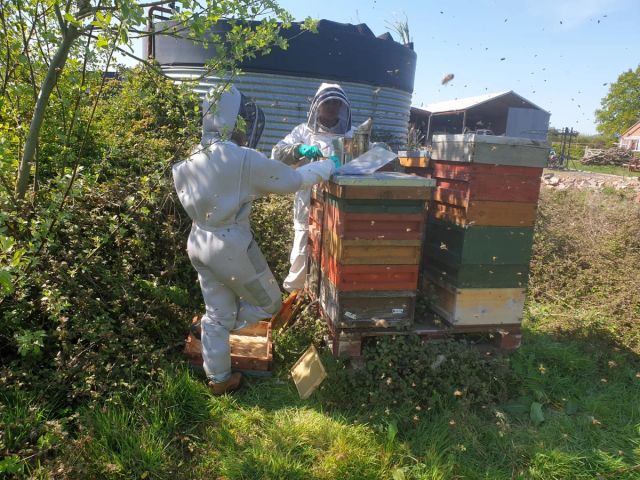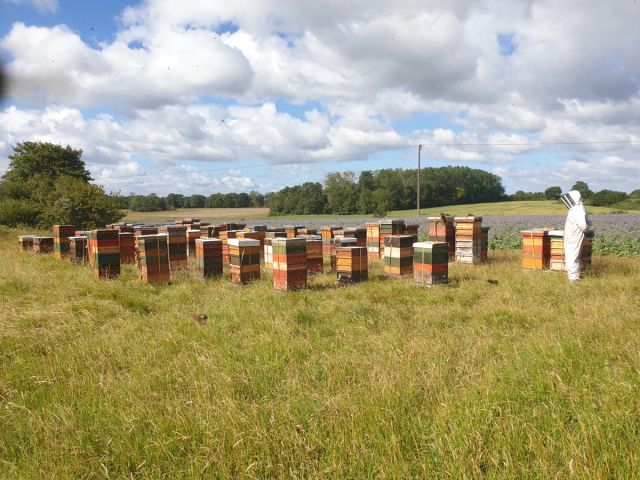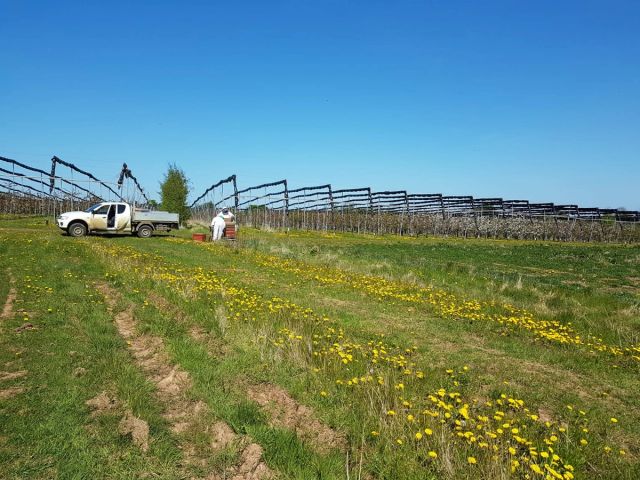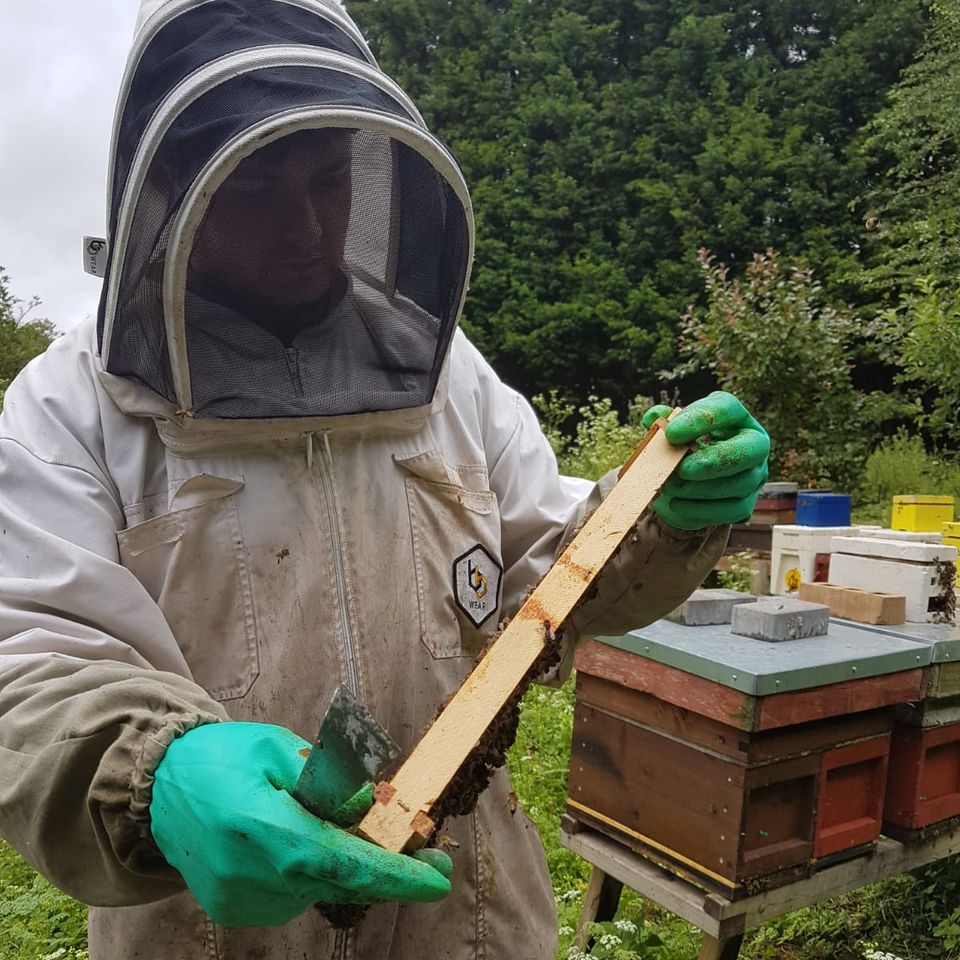Our diverse ecosystem in the UK makes it a haven for honey bees in the spring, summer and early autumn, and taking care of those bees and harvesting the honey they produce is an intricate skill possessed by only a small number of people in the UK.
The importance of encouraging a new generation into beekeeping can’t be underestimated, and our Bee a Bee Farmer apprenticeship scheme with our Rowse Hives for Lives partner, the Bee Farmers’ Association, does just that.
Meet one of our apprentices, Joshua. Having grown up with Rowse honey as a fixture on his breakfast table, Joshua is now not only one of the new generation in the industry providing a new perspective, but he’s also part of the local team harvesting the new Rowse Oxfordshire Wildflower Honey! Joshua tells us more about the apprenticeship and the flora that produces our delicious new honey.

How did you hear about the apprenticeship and what attracted you to it?
I heard about it through a colleague who was actually in their final year when I joined the business. I loved the sound of it; it seemed like a great way to expand my knowledge about bees and connect with like-minded bee farmers of a similar age. And it hasn’t disappointed! I’ve had the chance to learn aspects of beekeeping that aren't necessarily covered in my day to day working life, which has been so valuable. And one of the biggest positives for me on a personal level has been the connections I've made with other 'youngsters' in the industry. Bee farming is dominated by men over the age of 50 so it's refreshing to have a forum for discussion without that influence.
What do you enjoy most about beekeeping? And what’s the biggest challenge?
Being outside everyday has such positive mental health benefits. My mood is lifted every time I’m out with the bees – it brings such a sense of calm when I'm surrounded by the gentle buzz of bees in flight. However, for all the nice sunny days, there are those rainy days where you can't get anything done. Moving bees late at night in a downpour is particularly challenging!

Tell us about the local honey that you provided for the new Rowse Oxfordshire Wildflower Honey
Whilst a lot of honey available is monofloral (i.e. the bees forage on only one type of flower), our bees are almost always sited in apiaries where the forage varies month on month. This means that our bees not only have a diverse diet but the resulting honey has a wide range of pollens occurring. It’s this diversity that makes it unique. Our spring honey tends to be lighter in colour and flavour due to bees primarily foraging on hedgerows and flowering trees though oil seed rape is an important crop too. In summer, the forage tends to be clover or bramble, as well as wildflowers which farmers are now planting in abundance.

What’s your favourite honey and what do you like to eat it with?
I'm originally from Scotland so I have a soft spot for Heather honey – it's such a unique flavour and goes very well with my porridge in the morning!
